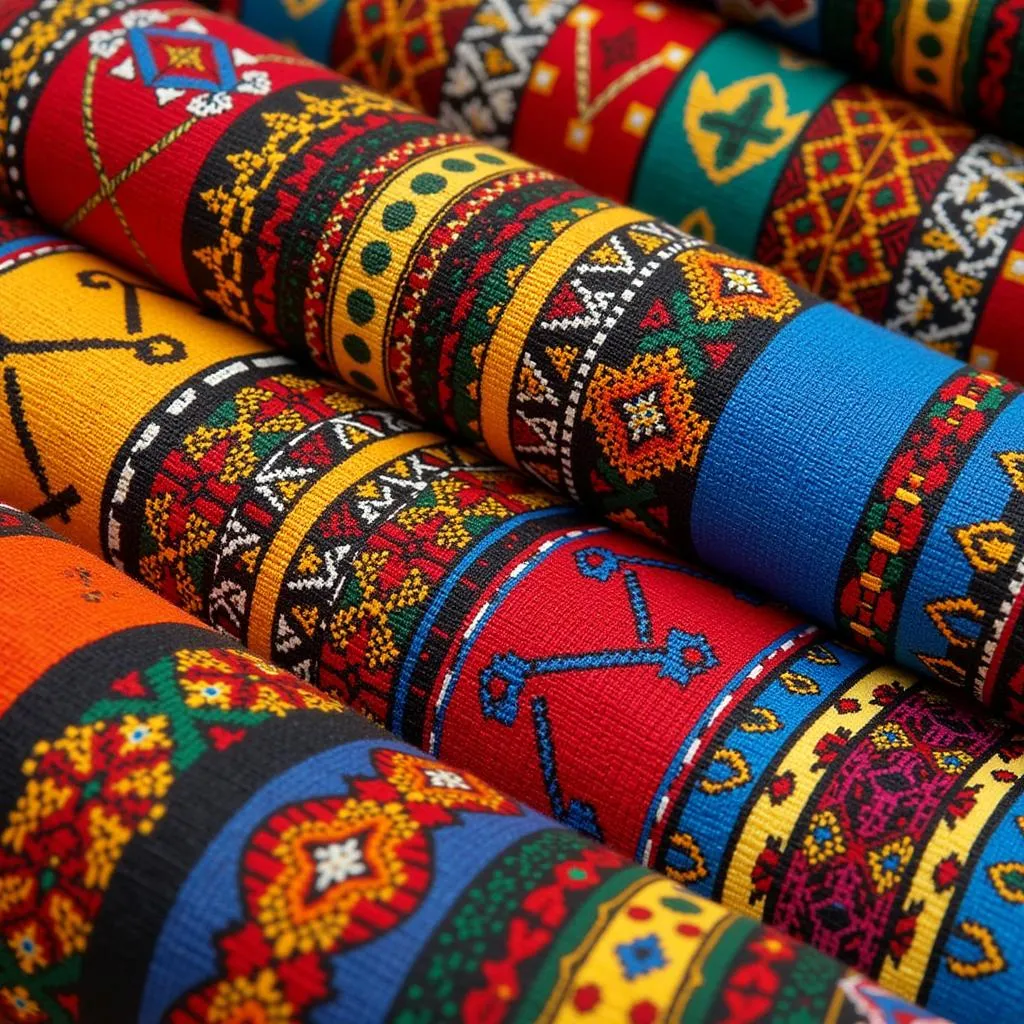African Cobra Snake Facts: A Deep Dive into the Venomous World
The African cobra snake, a name that evokes both fear and fascination, represents a group of highly venomous snakes found throughout Africa. This article will delve into the captivating world of these reptiles, exploring their diverse species, unique behaviors, potent venom, and role in African ecosystems.
Unveiling the Mysteries of African Cobras
African cobras belong to the genus Naja, which encompasses several distinct species. They are renowned for their distinctive “hood,” formed by spreading the ribs behind their head when threatened. This impressive display serves as a warning to potential predators. These snakes play a vital role in their respective ecosystems, primarily as apex predators, controlling populations of rodents, lizards, and other snakes. Some species, like the forest cobra, even venture into trees to hunt birds. Curious about other African predators? Check out this african desert animals video.
Identifying the Different African Cobra Species
From the spitting cobras, capable of projecting venom with remarkable accuracy, to the large Egyptian cobra, revered in ancient Egyptian culture, each species boasts unique characteristics. The Cape cobra, for example, is known for its neurotoxic venom, while the black-necked spitting cobra can spray its venom several meters, targeting the eyes of its aggressors.
African Cobra: Venom and Danger
The venom of African cobras varies considerably between species, but generally contains a complex cocktail of neurotoxins and cytotoxins. Neurotoxins attack the nervous system, causing paralysis, while cytotoxins damage tissues. A bite from an African cobra can be life-threatening without prompt medical intervention, highlighting the importance of respecting these creatures and their natural habitat. Are you intrigued by the African cobra’s venom? You can find more information on african cobra wikipedia.
Understanding African Cobra Behavior
African cobras are generally active during the day, although some species may exhibit crepuscular or nocturnal habits depending on the climate and prey availability. They are ambush predators, often lying in wait for their prey to approach before striking with lightning speed. During mating season, males engage in ritualistic combat, wrestling each other for dominance and the right to mate with a female.
Conservation and Coexistence with African Cobras
Habitat loss and human-wildlife conflict pose significant threats to certain African cobra populations. Understanding their ecological importance and promoting conservation efforts are crucial for ensuring their survival. While feared, they are vital components of the African ecosystem, playing a significant role in maintaining balance. There’s a fascinating african bird that kills snakes, showcasing the complex predator-prey relationships in Africa.
What to Do in Case of an African Cobra Encounter
Maintaining a safe distance is paramount when encountering an African cobra. Avoid provoking the snake and slowly retreat. If bitten, seek immediate medical attention, as antivenom is the only effective treatment for cobra envenomation.
“African cobras are not inherently aggressive,” explains Dr. Anika Moosa, a leading herpetologist specializing in African reptiles. “They will only attack if they feel threatened or cornered. Understanding their behavior is key to coexisting peacefully.”
Conclusion: Appreciating the African Cobra
The African cobra snake, with its diverse species and intriguing behavior, is a fascinating creature deserving of both respect and protection. Understanding these venomous snakes is crucial not only for human safety but also for appreciating the delicate balance they maintain within the diverse ecosystems of Africa. Learn more about the fascinating world of African cobras with this insightful african cobra crossword. Interested in intriguing flora? Discover the african cobra tree the man eating tree hindi details.
FAQ
- What is the most venomous African cobra? The venom potency varies, but the Cape cobra and the forest cobra are considered among the most dangerous due to their potent neurotoxins.
- Do all African cobras spit venom? No, only the spitting cobras possess the ability to project venom.
- What do African cobras eat? Their diet primarily consists of rodents, lizards, other snakes, and occasionally birds.
- Where do African cobras live? They inhabit various habitats across Africa, from deserts and savannas to forests and mountains.
- How can I avoid being bitten by an African cobra? Stay alert in their natural habitats, avoid approaching them, and never try to handle them.
- What should I do if I see an African cobra? Slowly back away and give the snake plenty of space to retreat.
- What is the lifespan of an African cobra? The lifespan varies depending on the species, but many can live for over 20 years in captivity.
When needing support, contact Phone Number: +255768904061, Email: [email protected] Or visit us at: Mbarali DC Mawindi, Kangaga, Tanzania. We have a 24/7 customer support team.

